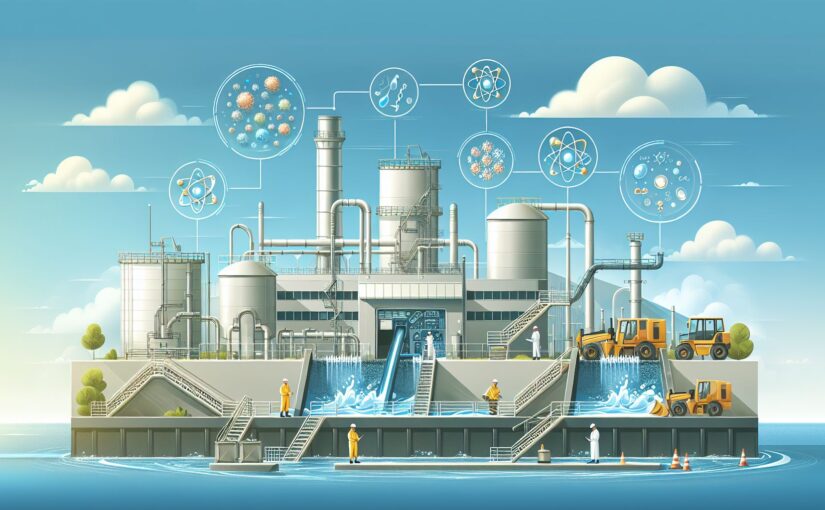Renewable energy from wastewater signifies a remarkable advancement in the area of green technology, that harbors the potential to address two critical global challenges: environmental sustainability and energy scarcity. The idea centers around harnessing the energy stored in wastewater, which is otherwise seen as a nuisance and an environmental threat.
Understanding The Concept
The underlining concept pertains to Microbial Fuel Cells (MFCs) which transform the chemical energy present in the wastewater into electrical energy. This is made feasible through the activity of unique bacteria, often referred to as “exoelectrogens,” that consume organic waste material and subsequently produce electrons as a byproduct. These electrons, when captured, result in the generation of an electrical current [^1^].
Potential Benefits
The potential benefits of generating renewable energy from wastewater are multifold. Not only does this concept pave a path for a sustainable way to treat wastewater, but it also opens up an unprecedented avenue for renewable energy production. Worldwide wastewater plants consume large amounts of energy; this technology can not only optimize energy usage but can also feed surplus energy back into the grid [^2^].
Current Challenges and Future Directions
Although the concept of generating renewable energy from wastewater holds immense promise, the translation from bench-scale studies to a real-world implementation is yet in the early stages. The challenges include wear and tear of materials, fluctuating performance, and bottlenecks in scaling-up the technology. Nevertheless, continuous advancements are propelling us closer to a practical solution, underpinned by efforts to improve the efficiency of MFCs and achieve a feasible large-scale design.
Besides, the potential of MFCs extends far beyond renewable energy generation. They can also be utilized as biosensors, for bioremediation processes, microbial desalination, and potentially capturing carbon dioxide to combat climate change, opening up a plethora of opportunities [^3^].
Renewable energy from wastewater truly signifies a stride towards utilizing waste as a productive resource. The journey might involve its unique challenges, but the destination promises a greener and more sustainable future.
[^1^]: Microbial Fuel Cells: Methodology and Technology
[^2^]: Wastewater Treatment Plants Could be a Source of Clean Energy
[^3^]: Microbial Fuel Cells: From Fundamentals to Applications
